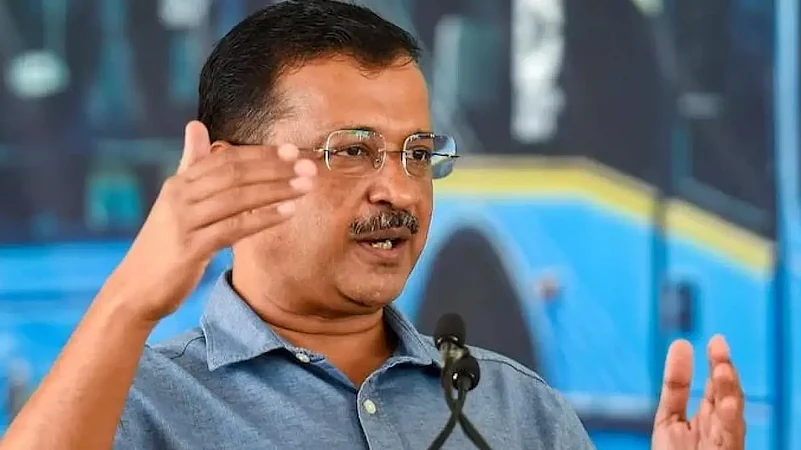Chief Minister Arvind Kejriwal on Monday claimed that among 10 most polluted cities in Asia, eight are from India and Delhi is not on the list.
Citing a report, he claimed that some years back, Delhi was considered to be one of the "most polluted cities in the world" but not anymore.
The chief minister posted the media report on Twitter and wrote, "Among 10 most polluted cities in Asia, eight are from India and Delhi not in the list. Some years back, Delhi was the most polluted city in the world. Not any more!"
He, however, said there is still a long way to go.
"People of Delhi worked very hard. Today, we have improved a lot. While we have improved, its still a long way. We will continue working hard so that we find a place in the best cities of the world," Kejriwal said.
"We are committed to making Delhi the best city in the world," he added.
Delhi's AQI stood at 301 on Diwali morning.
Twenty of the 35 monitoring stations in the city recorded the air quality in the "very poor" category, while the Anand Vihar station reported "severe" pollution levels (AQI 401).
The Delhi administration had on Saturday issued an order banning private construction in Anand Vihar and neighbouring areas considering the spike in air pollution levels there.
The neighbouring cities of Ghaziabad (302), Noida (302), Greater Noida (285), Gurugram (271) and Faridabad (256) reported poor to very poor air quality.
An AQI between zero and 50 is considered "good", 51 and 100 "satisfactory", 101 and 200 "moderate", 201 and 300 "poor", 301 and 400 "very poor", and 401 and 500 "severe".
SAFAR, a forecasting agency under the Union Ministry of Earth Sciences, had earlier predicted that the air quality may deteriorate to "very poor" on Monday morning (Diwali) due to calm winds and low temperatures which allow rapid accumulation of pollutants in the air.
It will continue to remain "very poor" if no firecrackers are burst, it said
In case firecrackers are burst like last year, the air quality may plunge to "severe" levels on the night of Diwali itself and continue to remain in the "red" zone for another day, the System of Air Quality and Weather Forecasting and Research (SAFAR) had predicted.
Diwali is being celebrated across the country on Monday.
The contribution of stubble burning to Delhi's PM2.5 pollution has so far remained low (up to five per cent) due to a slow transport-level wind speed. But, it is likely to increase to eight percent on Monday.
Gufran Beig, founder project director, SAFAR, said the transport-level wind direction and speed is likely to become "very favourable" for transport of smoke from stubble burning from Monday afternoon.
"It will increase the share of stubble burning in Delhi's PM2.5 pollution to 15-18 per cent on October 25 and push the air quality into the 'severe' category," he said.
The Indian Agricultural Research Institute reported 902 farm fires in Punjab, 217 in Haryana and 109 in Uttar Pradesh on Sunday evening.
According to the Centre for Research on Energy and Clean Air (CREA), intensive stubble burning is expected in the following weeks, further increasing Delhi's PM2.5 level which is around 110 microgram per cubic metre already.
People burst firecrackers in several parts of Delhi on Sunday night flouting the ban imposed by the Delhi government with impunity.
Environment Minister Gopal Rai had earlier said bursting of firecrackers on Diwali in the city will attract jail term up to six months and a fine of Rs 200.
He said production, storage and sale of firecrackers here will be punishable with a fine of up to Rs 5,000 and three years in jail under Section 9B of the Explosives Act.
A total of 408 teams have been set up to implement the ban. The Delhi Police has set up 210 teams under assistant commissioners of police, while the revenue department has set up 165 teams and the Delhi Pollution Control Committee has constituted 33 teams.


























